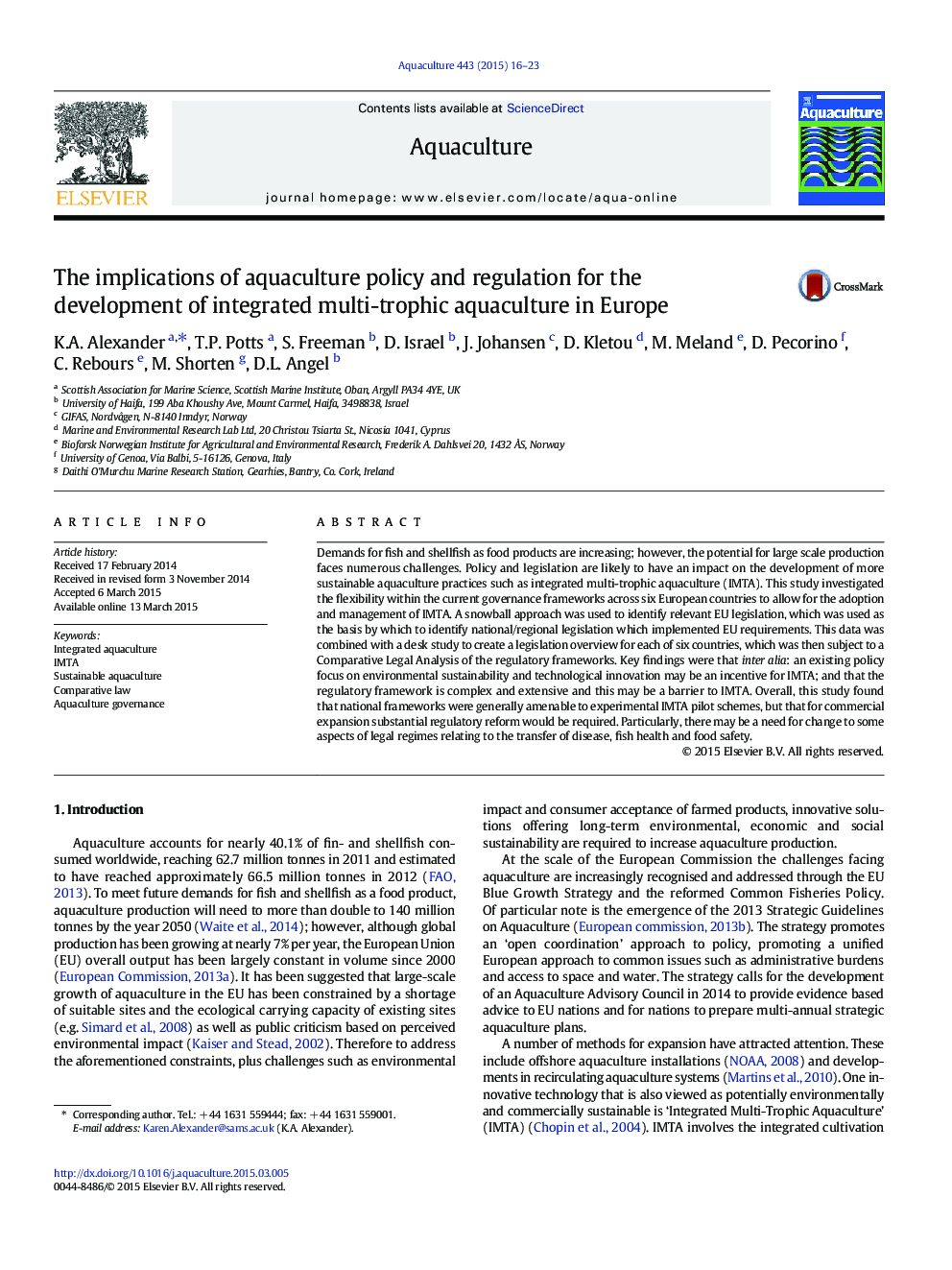| Article ID | Journal | Published Year | Pages | File Type |
|---|---|---|---|---|
| 2421582 | Aquaculture | 2015 | 8 Pages |
•The move towards IMTA at a pilot scale in Europe has been relatively seamless with IMTA being treated as an experimental ‘add-on’ to existing mono-culture sites.•Current aquaculture legislation focuses on the single species approach and it remains to be seen if it can be simply ‘amended’ to incorporate bi-culture and poly-culture at a commercial scale.•There may be a need for a change to some aspects of legal regimes in order to accommodate IMTA, particularly in relation to the transfer of disease, fish health and food safety.
Demands for fish and shellfish as food products are increasing; however, the potential for large scale production faces numerous challenges. Policy and legislation are likely to have an impact on the development of more sustainable aquaculture practices such as integrated multi-trophic aquaculture (IMTA). This study investigated the flexibility within the current governance frameworks across six European countries to allow for the adoption and management of IMTA. A snowball approach was used to identify relevant EU legislation, which was used as the basis by which to identify national/regional legislation which implemented EU requirements. This data was combined with a desk study to create a legislation overview for each of six countries, which was then subject to a Comparative Legal Analysis of the regulatory frameworks. Key findings were that inter alia: an existing policy focus on environmental sustainability and technological innovation may be an incentive for IMTA; and that the regulatory framework is complex and extensive and this may be a barrier to IMTA. Overall, this study found that national frameworks were generally amenable to experimental IMTA pilot schemes, but that for commercial expansion substantial regulatory reform would be required. Particularly, there may be a need for change to some aspects of legal regimes relating to the transfer of disease, fish health and food safety.
